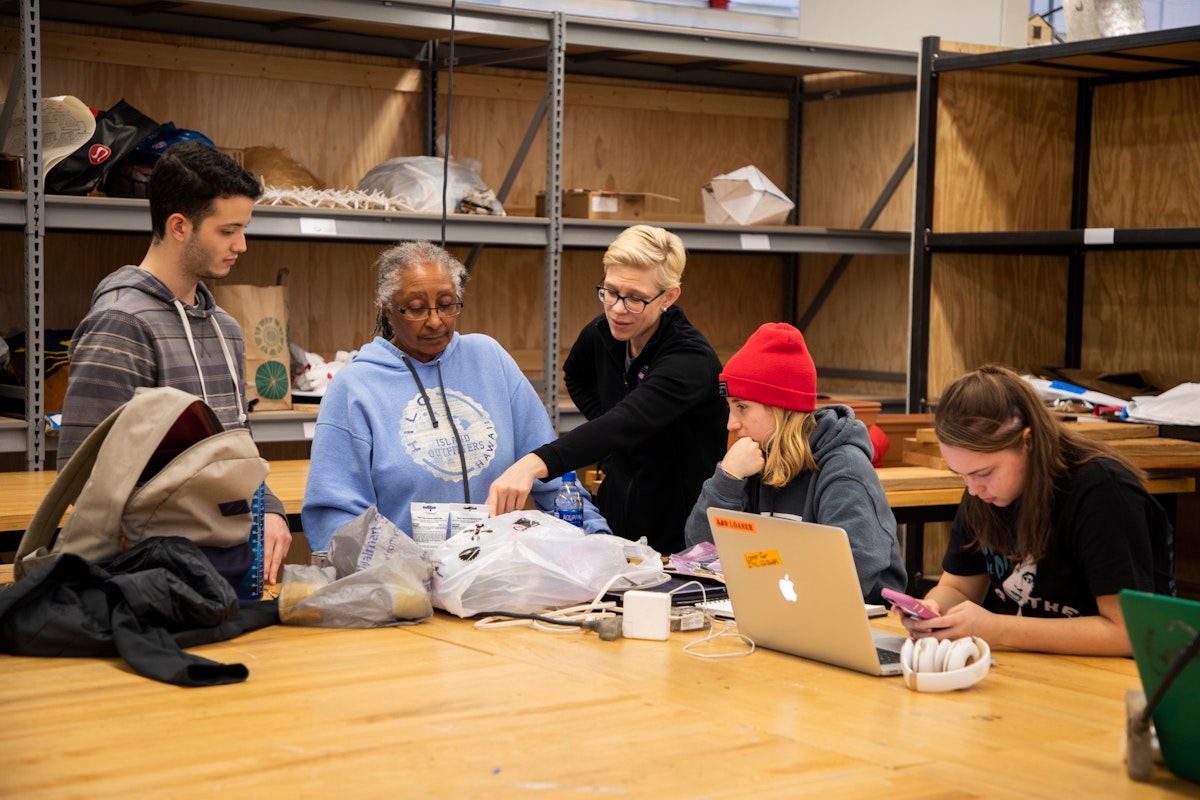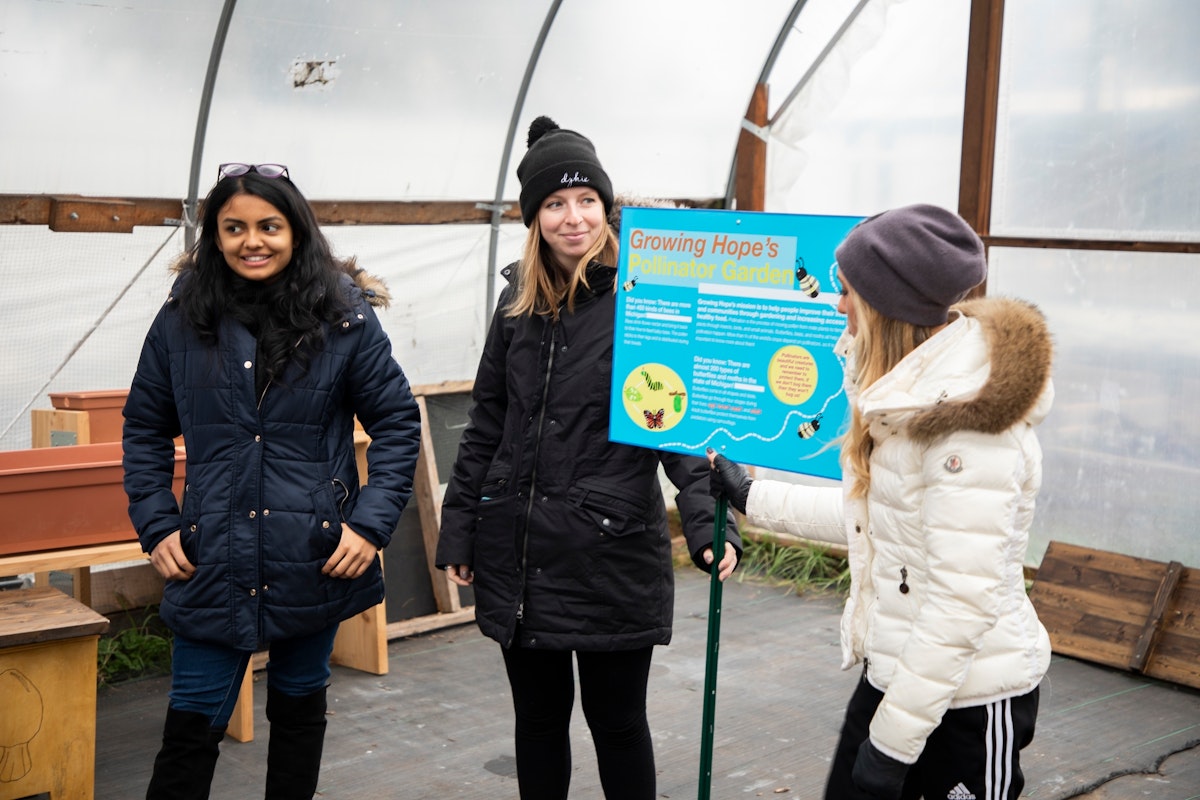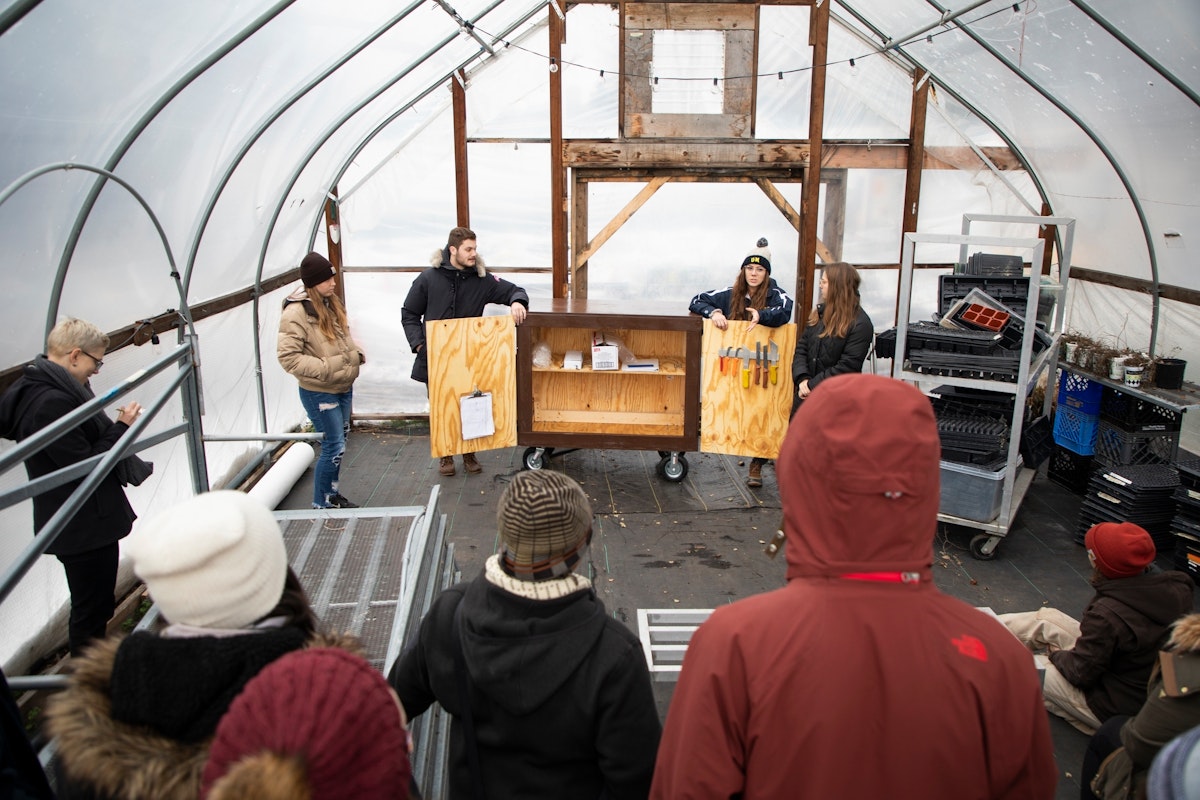Social Spaces Takes Root with Growing Hope
Taught by Anne Mondro and Marianetta Porter, Social Spaces is a 200-level course aimed at teaching Stamps Students “best practices” in social engagement.
During the fall 2018 semester, students in two sections of Social Spaces collaborated with Growing Hope, an Ypsilanti-based non-profit organization committed to improving lives and communities through gardening and increased access to healthy food.

In deep partnership with Bee Ayer, Program Director and Farm and Garden Manager at Growing Hope, students realized several design/build projects to address farm functionality and visibility with and for the organization. Projects included informational signage for several Growing Hope gardens, including rain and pollinator gardens; signage to identify medicinal plants and edible weeds; as well as educational diagrams to explain the way environmental structures such as green roofs and water processing systems work. Students also constructed modular seating units, a tool storage cart, vertical garden and a worm composting system. To ensure the effort extends far beyond the parameters of the course, Growing Hope received design drawings, plans, and templates that the organization can use in the future.

“The Social Spaces course seeks to deepen students’ interpersonal skills and cultural awareness,” said professor Porter. “The course reflects both a process and a philosophy that encourages meaningful engagement centered around close observation, active listening, and asking questions of ourselves as well as those with whom we collaborate.”
When founding the course during the 2017-2018 academic year, professor and undergraduate program co-director Anne Mondro worked with the Edward Ginsberg Center at the University of Michigan to make sure the course followed all best-practices for socially engaged practice.

“Engaged social practice is more than just working with an outside organization — it’s doing so with sensitivity, connectedness, and in a way that honors the community you’re working with as experts on their needs and their experiences,” Mondro said. “It is really exciting to see students really understand that and it makes teaching that much more meaningful.”

For Tanya Ballal, a junior visiting this year from Srishti Institute of Art, Design, and Technology studying Human-Centered Design, the real-world impact of the projects amplified the need for sensitivity, active listening, and reverence for the community’s needs. She reports entire class sessions devoted to learning the history of Ypsilanti and a workshop with the Ginsberg Center where students learned how to handle the partnership with care and respect. Furthermore, Ballal noted the transferrable skills found in the course. “Our projects included a lot of communication and feedback which is necessary for any designer to grow,” she said. “This skill of being able to talk to new people and adjust to each other is extremely important. Good communication allows us to form strong bonds and creates room for great collaboration.”
